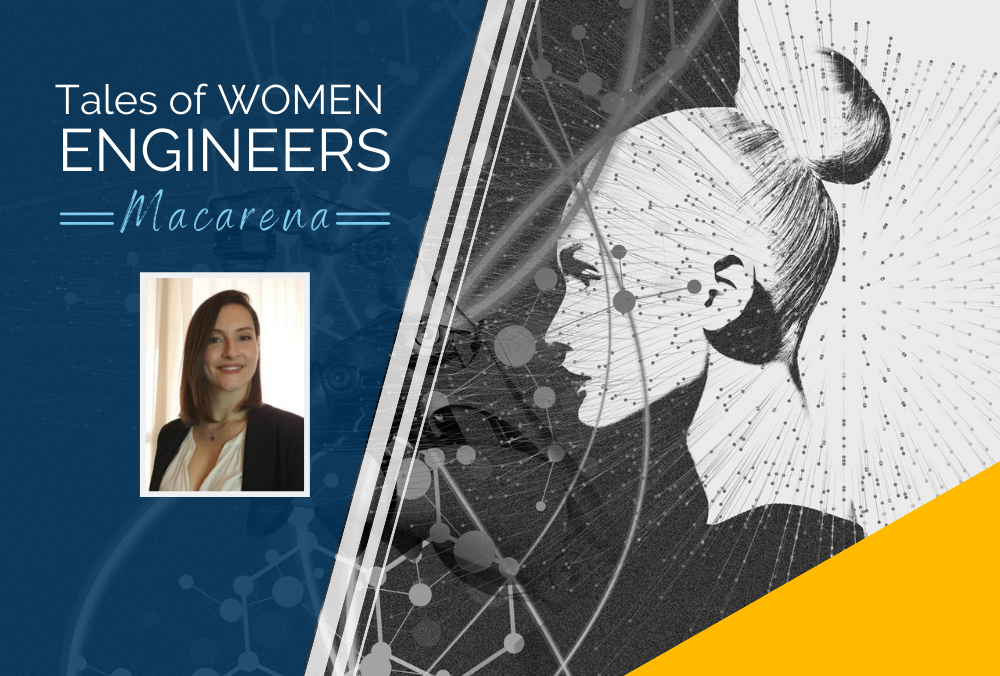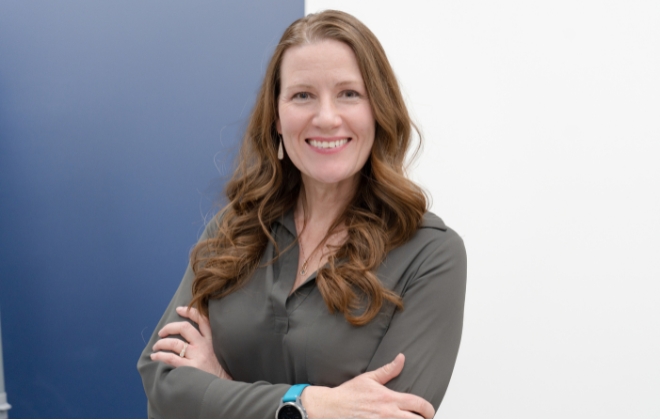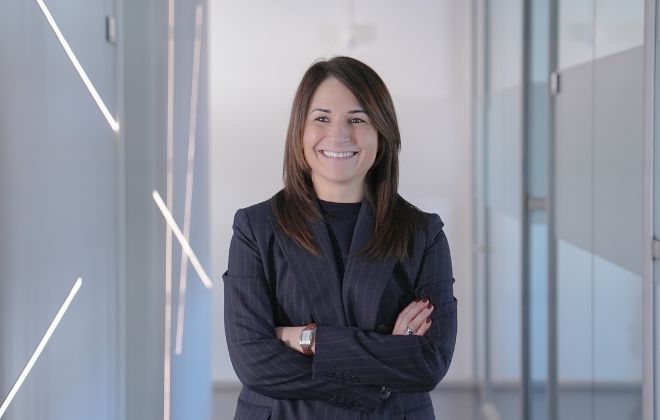Testimony of Macarena, Industrial Engineer at ALTEN Spain
“Developing products that meet everyone’s needs is what gets me up in the morning. And loving what we do is an inexhaustible source of motivation.”
This is how Macarena describes her work. A few years after opting for a generalist orientation by studying industrial engineering, her professional path became more specific, as she gained work experience in increasingly targeted sectors that gradually became linked to the world of life sciences.
In Spain, Macarena’s search for professional meaning began with her first experience in production control at an aircraft manufacturer: “Electrical and electronic tests were carried out and I was responsible for checking the general condition of the aircraft at every stage,” Macarena explains. After that, she was responsible for maintaining electrical and heating systems in large buildings such as clinics or shopping centres: “I did project management on a small scale: I managed the technicians’ maintenance and repair work, customer relations, budgets, spare parts orders with suppliers, etc. I discovered that I was really interested in project management, but not in electricity or heating!” she says with amusement. This prompted Macarena to have another experience in another country during an Erasmus placement in Belgium. She joined a company that makes cleaning products for household and industry and worked in the quality control and research and development (R&D) laboratory. “That’s where I started to find my way,” Macarena recalls.
“My dream? Develop a new health product” – Macarena
Attracted by the R&D and laboratory environment, she started training in the pharmaceutical sector, which is very active in Belgium: “Good manufacturing practices, coordination of validation and qualification projects for equipment and processes, etc. After completing this training, ALTEN offered me the opportunity to work on my first project in a pharmaceutical laboratory as a validation engineer. I was involved in final production, the last phase of the pharmaceutical manufacturing process, and in particular in the validation of equipment such as autoclaves, freeze dryers and filling lines.”
Two other projects of the same type with important players in the pharmaceutical industry confirmed Macarena’s interest in the application of industrial engineering in the field of life sciences.
Back in Spain, Macarena worked with a pharmaceutical laboratory to carry out a risk analysis of the entire production process of an injectable product, from the arrival of materials and raw materials to the final product leaving the factory. “Coordinating a multidisciplinary team to gather the information needed for the risk analysis, step-by-step analysis, creating an analysis of failure modes, their impact and criticality, creating the protocol for risk assessment and validation…. These are all tasks that I have been given and that have shown me that my vocation is to contribute to the development of products that serve health and, by extension, people, thanks to the most innovative scientific and technological techniques available on the market,” Macarena summarises.
It is a way for her to feel useful through her work, responding to the care needs of the four corners of the planet. “I feel I belong to the world of life sciences in its entirety: pharmaceuticals, food, cosmetics…. I find everything interesting! When I was a kid, I wanted to be a doctor, but I discovered that developing skincare products appealed to me much more (I even tried to develop my own homemade products!). Industrial engineering was the best way to make a career out of it: I was able to put my knowledge into practice in different sectors until I decided to go into life sciences.” A dream that Macarena would like to expand by one day developing a product that is useful for as many people as possible: “I would love to develop a new product and set up all the processes involved with a dedicated team of chemists, pharmacists and engineers…. Especially since I am currently doing a Master’s degree in cosmetic formulation and pharmaceutical development, so why not?”, she suggests.
Engineers in one word: “capable”
When asked if she had any doubts when choosing her professional direction and career, Macarena replies: “It is anything but easy to decide what you want to do for the rest of your life. For my part, I was guided by my curious personality and my desire to find solutions that would benefit everyone…This led me to a school to become an industrial engineer, which is a pretty broad focus. My choice was refined through information, trying different applications of engineering during internships and other courses of study. My final choice was Life Sciences Engineering because my experience in the pharmaceutical sector showed me that I received good feedback from my supervisors and was therefore capable of doing good work that I also enjoyed.”
“Capable”, is the word that best describes engineers according to Macarena. A word she likes to associate with another, “future”, when talking about the place of women engineers in the profession: “Not only are they capable in the truest sense of the word, but they have also proven in the past that they are able to take their place in the field (my superiors were mostly women!). And I am convinced that they will continue to do so in the future. Gender diversity is a powerful lever for meeting the challenges ahead: the role of the engineer is central to our daily lives and will continue to be so in the future as we see how fast technologies are developing. We need all future engineers, men and women, to rise to the challenge.”
Friendly advice from Macarena
“Take care of the Earth a little more! Developing new technologies and researching for a better life in the future is a good thing, as long as they are developed with minimal impact on the environment. In the pharmaceutical sector, for example, we are obliged to use disposable equipment to avoid any form of contamination. But as soon as we have the opportunity to do something else with it, for example, burn it to use the combustion and generate energy for other processes, or clean it, sterilise it, reuse it, etc. we will do this. This is a concern that should always be with all of us, regardless of our profession or lifestyle.”
Rapid fire question: Field or office?
“Both! But I have a slight preference for the field: that’s where you see what’s really going on and where everything you’ve prepared in the office comes to life, where your skills are confronted with reality. Without field work, we learn less.”









